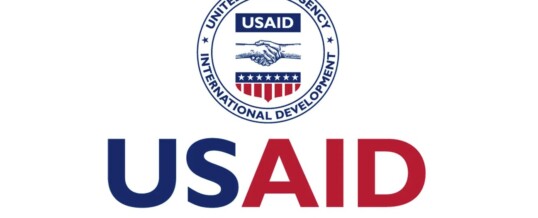
McLeod Group blog by Lauchlan T. Munro, February 4, 2025
In a midnight post on his social media platform X, Elon Musk announced what appears to be the “shutting… down” of the 63-year-old US Agency for International Development (USAID), America’s main vehicle for delivering development and humanitarian assistance overseas. As I write this, the USAID website is unavailable. Multiple news agencies are reporting that USAID headquarters in Washington is sealed off with police tape, that staff have been told to work from home and that hundreds of USAID staff have lost access to the agency’s IT system.
As is usual in the Musk-Trump world, chaos, uncertainty and misinformation reign. Musk has called USAID a “criminal organization” led by “a bunch of radical lunatics” and “filled with Marxist staffers”. Musk insists that Trump has approved of shutting down USAID. Secretary of State Marco Rubio, on the other hand, says he has taken over as Acting Director of USAID and that the Agency will be integrated into the State Department, to which it already reports.
There are five things to watch here.
The first is the legality of the whole thing. Musk’s “Department of Government Efficiency” (DOGE) is not a real government department; it has no existence in legislation and Congress has voted no funding for it. The US Senate has not confirmed Elon Musk as a US Government office holder, as the constitution requires. It is possible that the courts will rule that Musk is nothing more than a private citizen with no authority to issue such orders. Legal actions against DOGE are already underway. But getting court injunctions will take time, judicial decisions are subject to appeal, and legal action is a blunt and reactive instrument. Even if Musk’s actions are found to be without legal foundation, Trump and his officials still have multiple options for stifling or shuttering USAID.
Second, how easy is it to close a US$40 billion a year organization with 10,000 employees and multi-year financial commitments to dozens of international and non-governmental organizations? Not easy at all. Winding up thousands of contracts and funding agreements would take time, lots of time, even if things had been well planned, which they evidently have not been. I know: I was once a senior manager in an organization threatened with abrupt closure and was involved in such doomsday planning.
Third, watch for logjam in the US federal courts. Quite apart from the (il)legality of the Trump administration’s actions regarding USAID, lots of people are heading to the courts to block many Trump initiatives, including DOGE itself. The Musk-Trump axis has little time for legal niceties like legislation, contracts and collective agreements. They prefer to fix the world by issuing midnight social media posts and executive orders. But USAID’s unionized workers, contractors and recipients will likely follow the lead of others who are already taking the Trump administration to court if they believe the closure is being done improperly. With the US federal courts already suffering from a shortage of judges, expect things to drag on for years.
Fourth, watch the chaos spread around the world. USAID was the biggest bilateral donor in the world by far, accounting for about one fifth of aid from the OECD countries. USAID has been a major funder of projects by the UN and other multilateral and non-governmental organizations for decades; funding for these is now at risk. Officials in hundreds of multilateral and non-governmental organizations are today scrambling to understand what is going on and whether their projects and programs can continue.
More importantly, USAID’s important role in promoting global public goods appears to be at risk. Such global public goods include malaria control and data collection on demographic and health indicators in developing countries. Decades of data from the famous USAID-funded Famine Early Warning System have now gone offline; no one is sure if or when those data might return. Hundreds of thousands of people may lose access to antiretroviral treatment against HIV.
Fifth, if Secretary Rubio is correct and USAID is merely being more closely integrated into the State Department rather than being shut down, watch for what gets lost in that integration. If Canada’s experience of merging aid department and foreign ministry is anything to go by, years will be wasted working out the bureaucratic and financial details. Performance will suffer as a result, but also because semi-autonomous specialized agencies like USAID can be more effective precisely because of their autonomy and their specialization. Tying American aid even more tightly to American foreign policy and security interests will likely make American aid less effective and less relevant. Closer alignment of a reduced and integrated American aid program with US foreign policy will also likely mean less attention to those global public goods where USAID has played such a vital role.
I am the first to admit that USAID was an imperfect organization that at times provided bad advice and funded dubious causes because they aligned with US foreign policy interests. But I am also aware of the many good things that USAID’s highly qualified non-partisan experts in public health, agriculture, environment and other fields have done over the years. If USAID really is to be shut down (or greatly diminished) and if, as I suspect, no one else steps up to replace its funding, the good will be lost with the bad. If USAID is indeed closed down or radically downsized, I hope that Canada and other countries will try to salvage at least some of what is likely to be lost.
Lauchlan T. Munro is Full Professor at the University of Ottawa’s School of International Development and Global Studies. In an earlier life, he managed US government funding from USAID, the US State Department and the US Office of Foreign Disaster Assistance.
